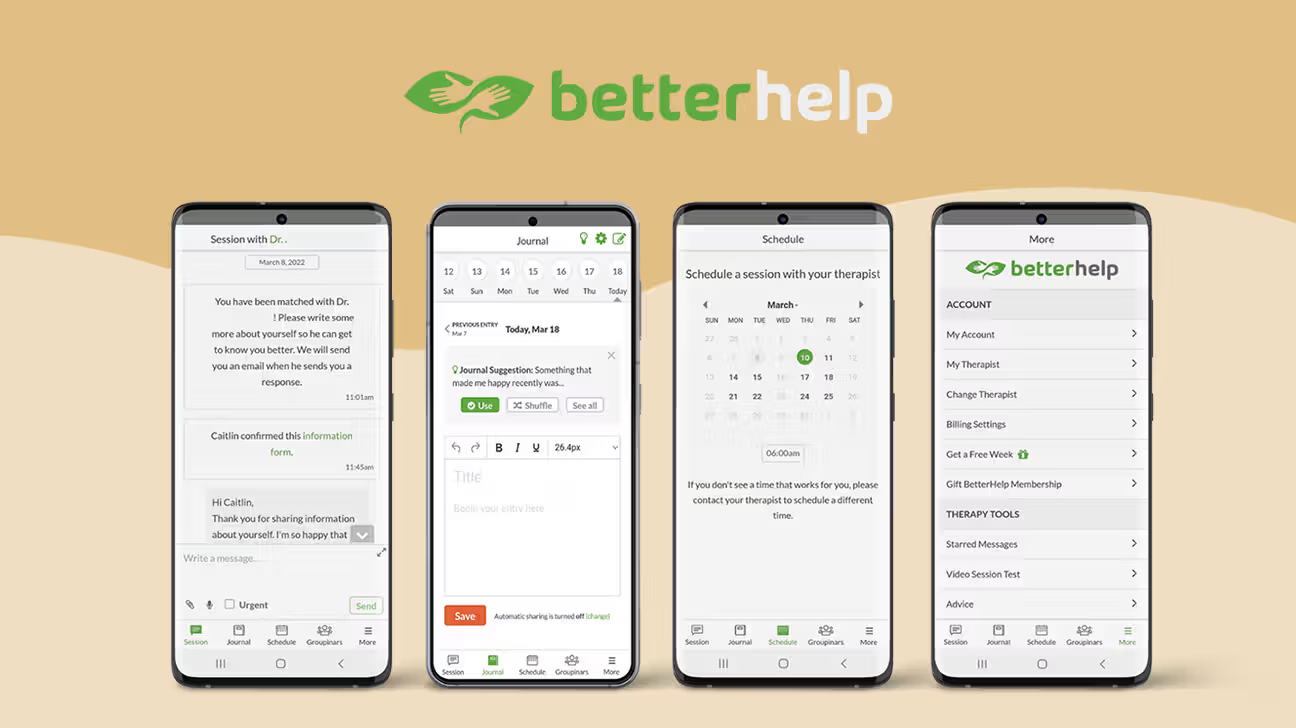Influencers have promoted this app frequently, but is it a legitimate business?
Have you ever scrolled through YouTube and watched a video? If so, you probably know about BetterHelp. Promoted as a mental health company, BetterHelp collects private user data they claim to keep secure. However, their clients tell another story.
Starting in 1995, psychotherapists such as David Somers have used the online landscape to gain clients who are not easily available in the immediate area. This business has only continued to spiral into popularity. Due to the COVID-19 pandemic that spanned two years, people have turned to social media to keep themselves socially fulfilled during physical isolation. With the loneliness epidemic cycling around the US, more and more people began to feel socially anxious and depressed. As such, a company has taken advantage of our desperate therapist market and promoted their online app that matches members of the mentally unhealthy to therapists. While its website advertises its mental health support, such as its LGBTQIA+ support group, the company’s reality could be the opposite of the truth. On DailyMail, a British news site, multiple of BetterHelp’s clients spoke up, citing their own experiences and questioning the legitimacy of online therapy. One of the clients cited that instead of talking through their mental struggles, the therapist told her “to be average.” They also point to the working conditions of the therapists, most of which get paid $30, raising the question of why qualified individuals would want to work there.
Other agencies cited additional concerns. In July 2023, the FTC released a report citing Betterhelp’s use of private and personal data obtained from a questionnaire issued to people for placement into private therapy. Even after the FTC ordered the company to pay $7 million, it is unclear if the company has changed its internal policies.
But considering it earned $1.13 billion in the past year alone, did the fee they had to pay make a difference? Most likely not. In the eyes of business executives, paying $7 million to the FTC is a small amount, sometimes not even noticeable. Therefore, they most likely are carrying on as they were before, as indicated by the sign on their website: “We provide personal health information to conduct our business.” BetterHelp is not any different from the website it was before. It just reformed. Now, it is using younger Gen-Z influencers to gain the attention of a younger audience who are unaware of the risk that their data privacy and safety pose when they download such a dangerous app. Hopefully, the next time you open your phone, you will be just a little more educated about the dangers of this app.
Sources
header image from https://www.healthline.com/health/mental-health/betterhelp-review
www.dailymail.co.uk/health/article-13639815/BetterHelp-accused-therapy-patients-unprofessional.html
https://online-psychology.net/en/the-history-of-online-psychotherapy/

 Spirit Week Is Next Week! Here's an In-Depth Schedule
Spirit Week Is Next Week! Here's an In-Depth Schedule